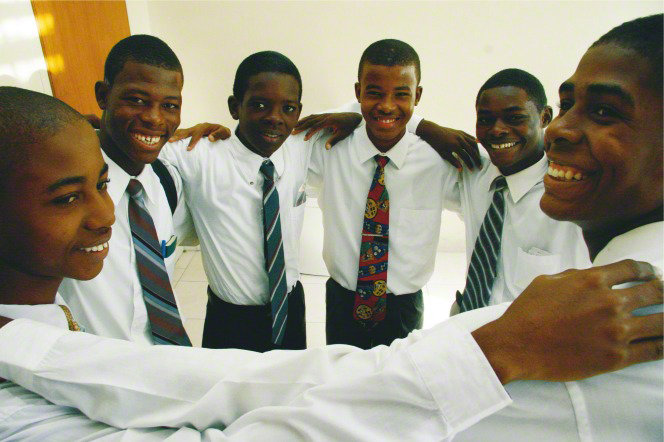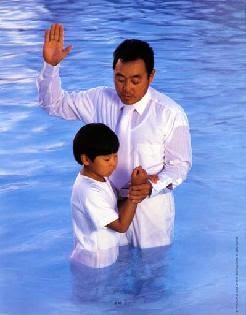Question
Gramps,
Why doesn’t the Holy Ghost have a body of flesh and bones the same as the Father and the Son?
Danilo
Answer
Danilo,
In Latter-day Saint theology, the Holy Ghost is described as a “personage of spirit” (Doctrine and Covenants 130:22). Unlike God the Father and Jesus Christ, who possess physical bodies of flesh and bones, the Holy Ghost does not have a body. This distinction allows Him to dwell within individuals, providing guidance and comfort. The ability of the Holy Ghost to be present with multiple people simultaneously is a significant aspect of His role. As a spirit, He can influence and communicate with many individuals at once, unlike the Father and the Son, who are limited by their physical forms.
The Holy Ghost’s role as a spirit is essential for His function as a comforter and guide. He is often referred to as the “Comforter” in scripture, emphasizing His mission to provide peace and reassurance to those who seek it. This ability to be present in the hearts of the faithful is a unique aspect of His divine nature, allowing Him to fulfill His purpose effectively.
A common question arises regarding how the Holy Ghost can be considered a God without a physical body. In Latter-day Saint belief, Godhood is not solely defined by having a physical form. The Holy Ghost is a member of the Godhead, which includes God the Father, Jesus Christ, and the Holy Ghost. Each member of the Godhead has distinct roles and responsibilities, and the Holy Ghost’s lack of a body does not diminish His divine status.
The concept of Godhood in Latter-day Saint theology is complex. While it is taught that exaltation—becoming like God—requires a physical body, the Holy Ghost’s current state does not preclude Him from being a God. His divine authority and power are inherent to His position within the Godhead, and He is fully capable of fulfilling His divine mission without a physical form.
One of the most significant aspects of the Holy Ghost’s role in the lives of Latter-day Saints is the “Gift of the Holy Ghost.” This gift is conferred upon individuals after they are baptized, through the laying on of hands by someone holding the Melchizedek Priesthood. This ordinance grants the recipient the constant companionship of the Holy Ghost, provided they remain worthy.
The Gift of the Holy Ghost is distinct from the influence of the Holy Ghost that individuals may feel before baptism. While anyone can experience the Holy Ghost’s influence, the gift allows for a more profound and continuous relationship. This companionship is essential for spiritual growth, providing guidance, comfort, and revelation to the faithful.
The Holy Ghost serves as a teacher and guide, helping individuals discern truth and navigate the challenges of life. He communicates the will of the Father and the Son, providing insights and understanding that can lead to personal revelation. This role is particularly important in the context of decision-making and moral dilemmas, where the Holy Ghost can offer clarity and direction.
Elder Robert D. Hales of the Quorum of the Twelve Apostles emphasized the importance of the Holy Ghost in receiving personal revelation. He stated that the Holy Ghost can enlighten our minds and help us understand the truths of the gospel, guiding us in our daily lives. This guidance is not limited to members of the Church; many individuals, regardless of their faith, can feel the influence of the Holy Ghost in their lives.
A question that often arises is whether the Holy Ghost will ever receive a physical body. While there is no definitive answer provided in scripture, some teachings suggest that the Holy Ghost is waiting for the opportunity to take on a body, similar to how Jesus Christ did. However, this remains speculative, as Church leaders have cautioned against making definitive statements on the matter.
Joseph Smith, the founder of The Church of Jesus Christ of Latter-day Saints, indicated that the Holy Ghost is a spiritual being who may eventually receive a body, but the timing and circumstances of this event are not known. The focus for believers should be on the Holy Ghost’s current role and mission rather than speculating about His future.
Regardless of whether the Holy Ghost will receive a body, His current role is of utmost importance to the spiritual lives of Latter-day Saints. He is a vital source of comfort, guidance, and revelation, helping individuals navigate their spiritual journeys. The emphasis on living in accordance with the teachings of the Holy Ghost is crucial for personal growth and development.
The Holy Ghost’s ability to dwell within individuals allows for a unique and personal relationship with the divine. This relationship is foundational to the faith of Latter-day Saints, providing them with the strength and guidance needed to face life’s challenges.
Gramps







